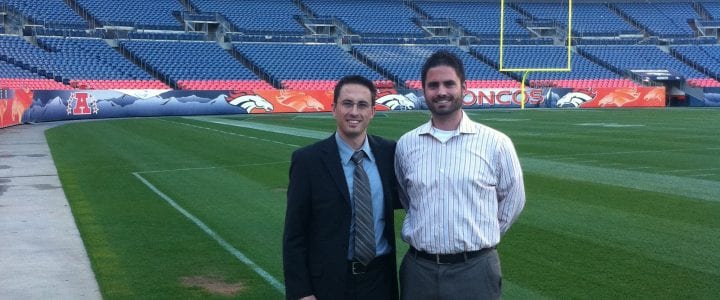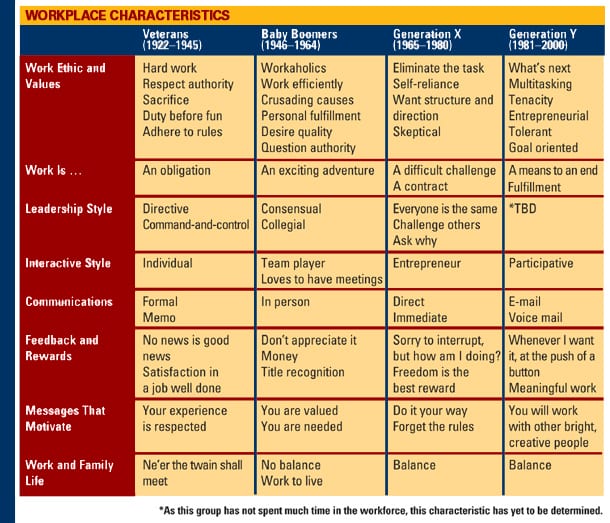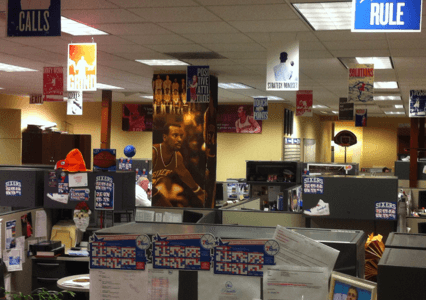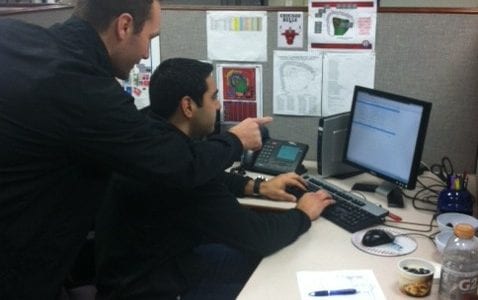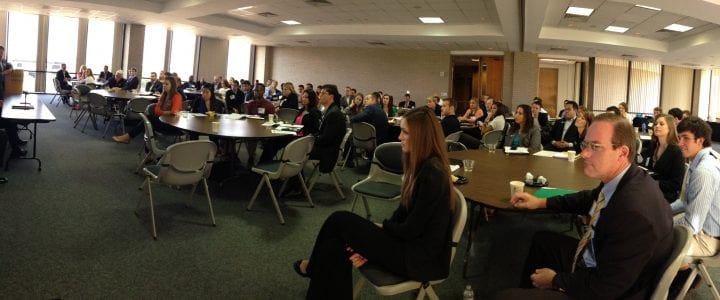by Kirk Wakefield – November 2016
Note: In this re-release (first posted April 1, 2013), we congratulate Colin Faulkner, and the 2016 World Champion Chicago Cubs, for catching up to brother Chris Faulkner, whose Denver Broncos won the 2016 Super Bowl.
S3 Board Member Spotlight


Brothers. Friends. Sports.
These three words bind Chris and Colin Faulkner together as one of the few sets of brothers in the business of sports.
Colin is the Vice President of Sales & Partnerships with the Chicago Cubs. Chris is Manager of Club Seat Sales and Service with the Denver Broncos. Each took different routes getting into their careers.
Overcoming rejection
Colin’s experience with Baylor’s call center and the Waco Wizards (surprise: a defunct hockey team) reinforced his desire to enter sports after graduating from Baylor (1998).
Part of Colin’s motivation today stems from his early days searching for an entry level position. The S3 program’s own, Dr. Darryl Lehnus, then Associate Athletic Director over sales & marketing, spurned Colin for an internship while Colin was working towards his undergraduate degree. Then following scores of applications, Colin’s resume eventually landed in the hands of Shawn McGee of the old Dallas Burn where Colin received his only offer. What happened to all those rejection letters? Fifteen years later they still have their own special place in Colin’s desk.
Colin went on to prove himself as an account executive with the then combined Texas Rangers/Dallas Stars group before moving to roles with the Stars as the Director of Ticket Sales (2002),Vice President of Ticket Sales (2004), Sr. Vice President of Ticket Sales & Service (2007), and Sr. VP of Marketing (2009). Fulfilling a lifelong dream, Colin was selected as the Vice President of Ticket Sales & Service with the Chicago Cubs (2010) before his recent promotion this spring to include corporate partnerships.
Operations, IT or Sales?
Chris started out with idea of working in operations or IT for a professional team after graduating from Baylor (2001). In his search, Chris quickly learned the lifeblood of an organization was in sales – and the best entry point. After beginning with the Colorado Rockies, Chris moved into a senior account executive position with the Texas Rangers (2003) before promotions to Group Sales manager (2005) and then Director of Ticket Sales (2007). Following, Chris moved west as the Director of Ticket Sales for the Colorado Crush (2008) before moving across town to sell premium seats for the Broncos (2009) to ultimately assume his current position as Manager of the department (2010).
Work ethic = Success
The brothers share beliefs about what leads to success. Working for good managers helps paves the way. They believe in working hard, having a good attitude and working smart. As Chris points out, sales is purely an effort-based position, “Put in the work and put in the hours.”
Mentors play a role in the success of anyone who moves up the ranks. Geoff Moore, Colin’s mentor, is quick to share his thoughts on Colin’s work ethic and attitude:
“Colin has true character. He is competitive, intelligent and curious. But, his most important quality is his optimism. He believes his hard work will make a difference. This combination of talent and work effort make him a great employee and leader.
Similarly, Andy Silverman, shared from his experiences with Chris:
Chris is a true professional at every level. From my many years working alongside Chris at the Texas Rangers, to his current role running Premium Sales at the Denver Broncos, Chris not only has my utmost respect but admiration as a true sales professional. I consider Chris a master of his craft and even more importantly a trusted friend and confidant.
Having a Brother in Sports
Chris and Colin get along, well, just like brothers. They benefit from each other’s experiences, frequently texting each other to share updates, bounce ideas off the other, and share in each other’s successes. Although Chris feels some pressure to keep up with his older brother, they don’t feel like they compete with each other since both have done well in their careers. Colin said that if he had the option to hire Chris to work for him, he probably wouldn’t because Chris is in such a good situation right now.
Two well-known brothers in sports are the Leiweke brothers, Tim and Tod, and the Yormark brothers, Brett and Michael. Give the Faulkner brothers a few years. When you see them on the front of Forbes magazine, remember you saw them featured first on the S3 Report!


